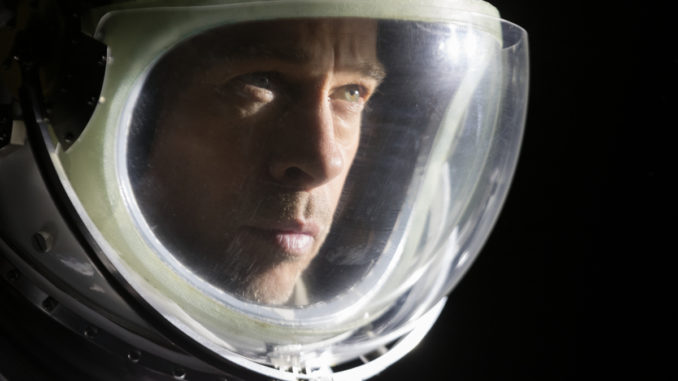
TMN film critic Gordon McPherson gives “Ad Astra” 5 out of 5 stars.
Director James Gray’s cerebral, sublime and extraordinarily ambitious “Ad Astra” is the best science-fiction film since “Blade Runner 2049” and a refreshing palate cleanser after the disappointing “It: Chapter Two.”
Gray’s vision of the future — dominated by warfare over natural resources, ever-present capitalism, mentally scarred soldiers and Wild West-esque space pirates — remains compelling and chillingly plausible from start to finish. So, too, does the introspective journey undertaken by Major Roy McBride, played by career-best Brad Pitt. McBride, plagued by depression, post-traumatic stress and daddy issues, is an astronaut working for the unfortunately titled Space Command branch of the U.S. Military. He eventually embarks on a mission to find his father, H. Clifford McBride, played by Tommy Lee Jones, after life-threatening electrical surges emanate across Earth’s solar system from his father’s last known location near Neptune. Clifford McBride, idolized as a hero throughout Space Command, previously undertook an intergalactic mission to discover whether intelligent life exists beyond. What could go wrong?
With strong hints of “Apocalypse Now,” “2001: A Space Odyssey” and the aforementioned “Blade Runner 2049,” “Ad Astra” presents a scarred hero’s mythic journey into the darkest recesses of space and his own heart.
Of course, using the science-fiction genre to explore universal themes isn’t anything new, but “Ad Astra” contributes some genuinely unique insight into contemporary masculinity, the influence of family and the corrupting pull of destiny.
With such heady, intellectual themes comes inevitable sacrifices for what general moviegoers consider traditional “entertainment.” “Ad Astra” is a slow burn if there ever was one, demanding a level of patience that will separate casual from serious moviegoers during its two hour runtime.
The thrilling-but-detached action sequences sprinkled throughout are always entertaining, but viewers shouldn’t expect an action film. The film aspires to be something greater.
Pitt’s pervasive narration, for example, while at times pretentious and a bit too on the nose, sets a chilling, melancholic tone throughout that instills this adventure with soulful — at times heartbreaking — emotion.
Pitt’s performance, while reminiscent of Ryan Gosling’s acting style in “Blade Runner 2049” and “First Man,” is a prime example of minimalism in its rawest form. Conditioned to compartmentalize his emotions to repress his true pain and suffering, McBride’s vulnerability is perfectly depicted in several powerful scenes of soul searching.
Indeed, McBride is such a fascinating protagonist — perfectly portrayed — that I was in tears at multiple points throughout the film. This didn’t stop impolite audience members in my theater from yapping incoherently during critical sequences, though. I suppose not everyone can appreciate art.
I’d be remiss without mentioning the film’s stunning cinematography by Hoyt Van Hoytema, who previously collaborated with Christopher Nolan on “Dunkirk.”
Utilizing elaborate lighting, jaw-dropping vistas and artful symbolism, “Ad Astra” is filled with shots begging to be framed in museums.
The film’s few flaws, revolving around some drawn-out flashback sequences that proved too pretentious, poorly-developed side characters and some abrupt dialogue never detract from the overall experience.
If giving this film — which I fear will end up being overlooked by most moviegoers due to a lackluster trailer — a rating of 5/5 makes more people go see it, my mission will be accomplished. Don’t miss “Ad Astra” if you’re looking for a film that goes beyond mere entertainment.
